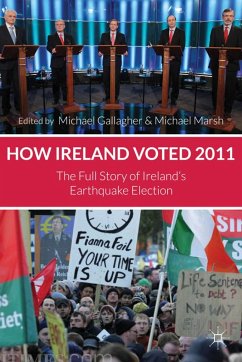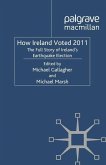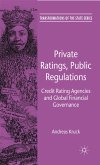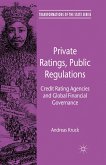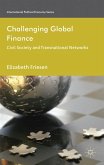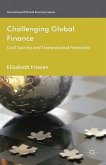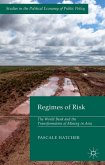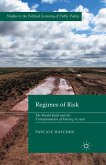The collapse of the Irish 'Celtic Tiger' economy, in the wake of a banking disaster, provoked a joint EU/IMF rescue plan in late 2010. The election that followed saw Europe's most successful ever party lose more than half of its vote and almost three quarters of its seats. This book provides the definitive analysis of an electoral earthquake.
'How Ireland Voted 2011 tells the inside story of an historic General Election which radically redrew the country's political map, almost wiping out the dominant political party and delivering an historic victory to a once demoralised opposition. Gallagher and Marsh have assembled a masterful survey of Ireland 'ballot box revolution'. - Brian Dobson, RTE
'This is undoubtedly the most comprehensive Irish election analysis ever put between one set of covers. Marsh, Gallagher and colleagues have captured all the shifts, shocks and after shocks of Ireland's most seismic election. Practitioners, students and junkies of politics will devour it.' - Noel Whelan, Political Analyst and Irish Times Columnist
'The "must-read" and timely account by Irish political scientists of the Irish general election, this book builds on the strengths of past volumes, while also discussing important innovations such as the role of the new media. It is doubly compelling because of thecataclysmic nature of the 2011 election.' - Michael Laver, Professor of Politics, New York University, USA
'No scholar of contemporary democratic politics can afford to ignore the 2011 Irish election. Hit especially hard by the world-wide banking crisis of 2008, Ireland's voters unleashed an electoral earthquake. In this book the country's leading electoral scholars provide an unrivalled analysis of how this drama unfolded and what it might portend for the future not only for Ireland but for the many democracies that are now having to learn to live with an 'age of austerity.' - John Curtice, Professor of Politics, University of Strathclyde, UK
Praise for previous editions:
' the achievement of the editors in shaping this book and indeed in establishing this series ranks among the most impressive in the ever-expanding academic literature on Irish elections.' John Bowman, Irish Times
'Overall the volume's comparative outlook, both across time and across Europe is one of its stronger features...most importantly we can appreciate why, as Peter Mairs argues, both in itself and comparatively, the Irish 2011 election is so seismic and at the same time, given the wider European crisis and the terms laid down by the EU, the ECB and the IMF, why it matters so little.' - LSE Blog
'This is undoubtedly the most comprehensive Irish election analysis ever put between one set of covers. Marsh, Gallagher and colleagues have captured all the shifts, shocks and after shocks of Ireland's most seismic election. Practitioners, students and junkies of politics will devour it.' - Noel Whelan, Political Analyst and Irish Times Columnist
'The "must-read" and timely account by Irish political scientists of the Irish general election, this book builds on the strengths of past volumes, while also discussing important innovations such as the role of the new media. It is doubly compelling because of thecataclysmic nature of the 2011 election.' - Michael Laver, Professor of Politics, New York University, USA
'No scholar of contemporary democratic politics can afford to ignore the 2011 Irish election. Hit especially hard by the world-wide banking crisis of 2008, Ireland's voters unleashed an electoral earthquake. In this book the country's leading electoral scholars provide an unrivalled analysis of how this drama unfolded and what it might portend for the future not only for Ireland but for the many democracies that are now having to learn to live with an 'age of austerity.' - John Curtice, Professor of Politics, University of Strathclyde, UK
Praise for previous editions:
' the achievement of the editors in shaping this book and indeed in establishing this series ranks among the most impressive in the ever-expanding academic literature on Irish elections.' John Bowman, Irish Times
'Overall the volume's comparative outlook, both across time and across Europe is one of its stronger features...most importantly we can appreciate why, as Peter Mairs argues, both in itself and comparatively, the Irish 2011 election is so seismic and at the same time, given the wider European crisis and the terms laid down by the EU, the ECB and the IMF, why it matters so little.' - LSE Blog

